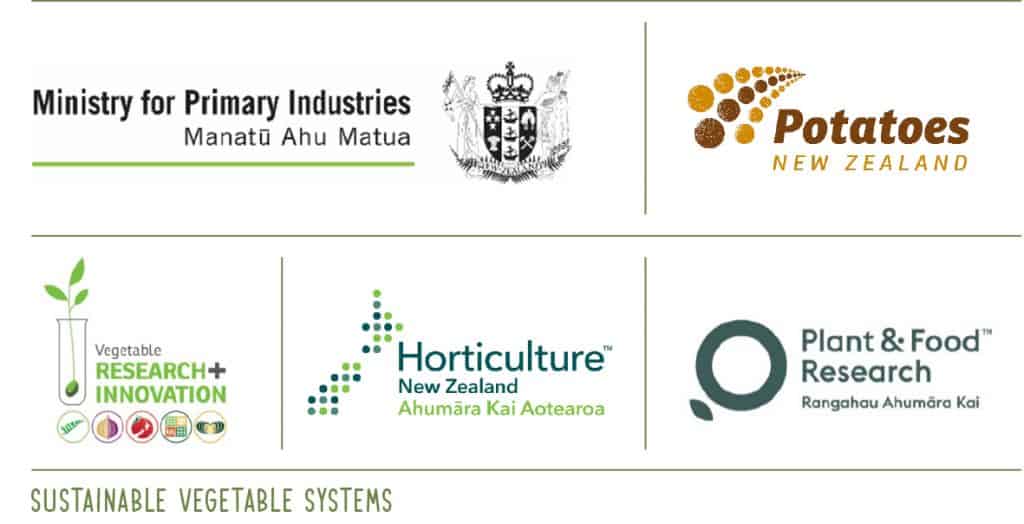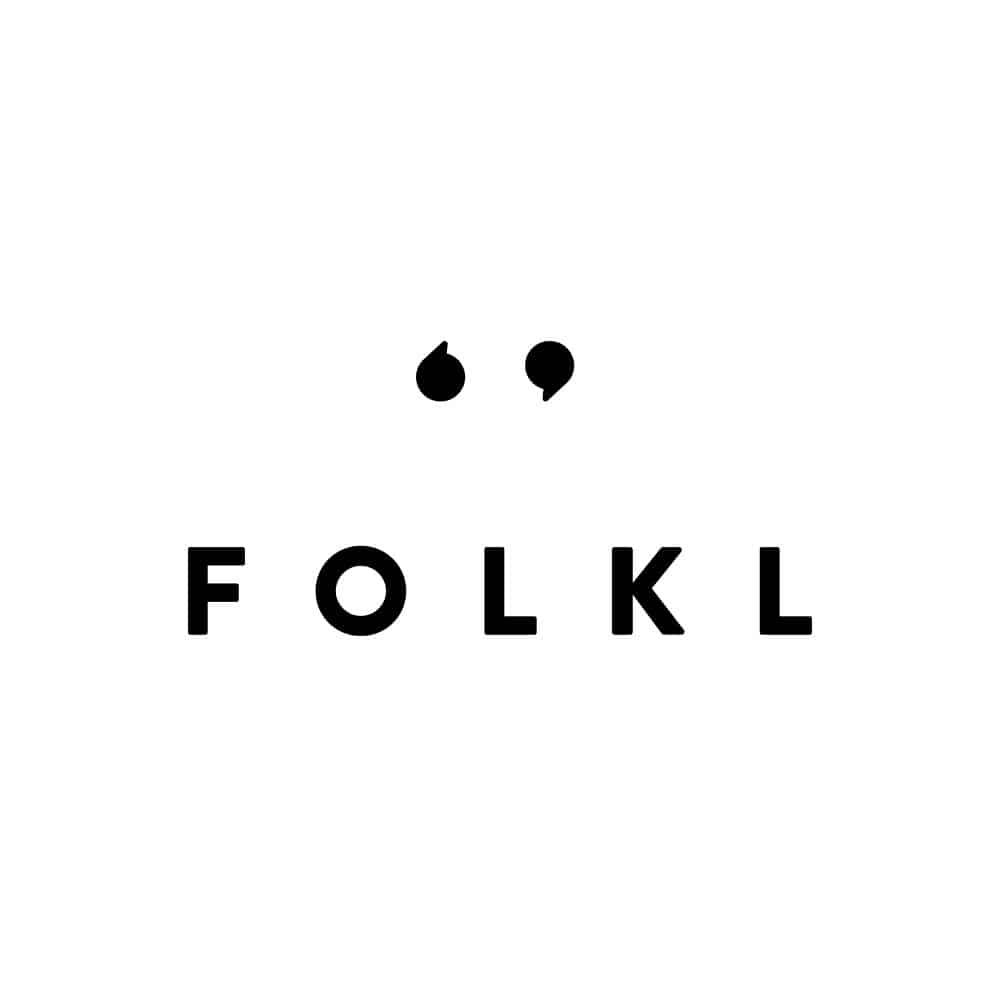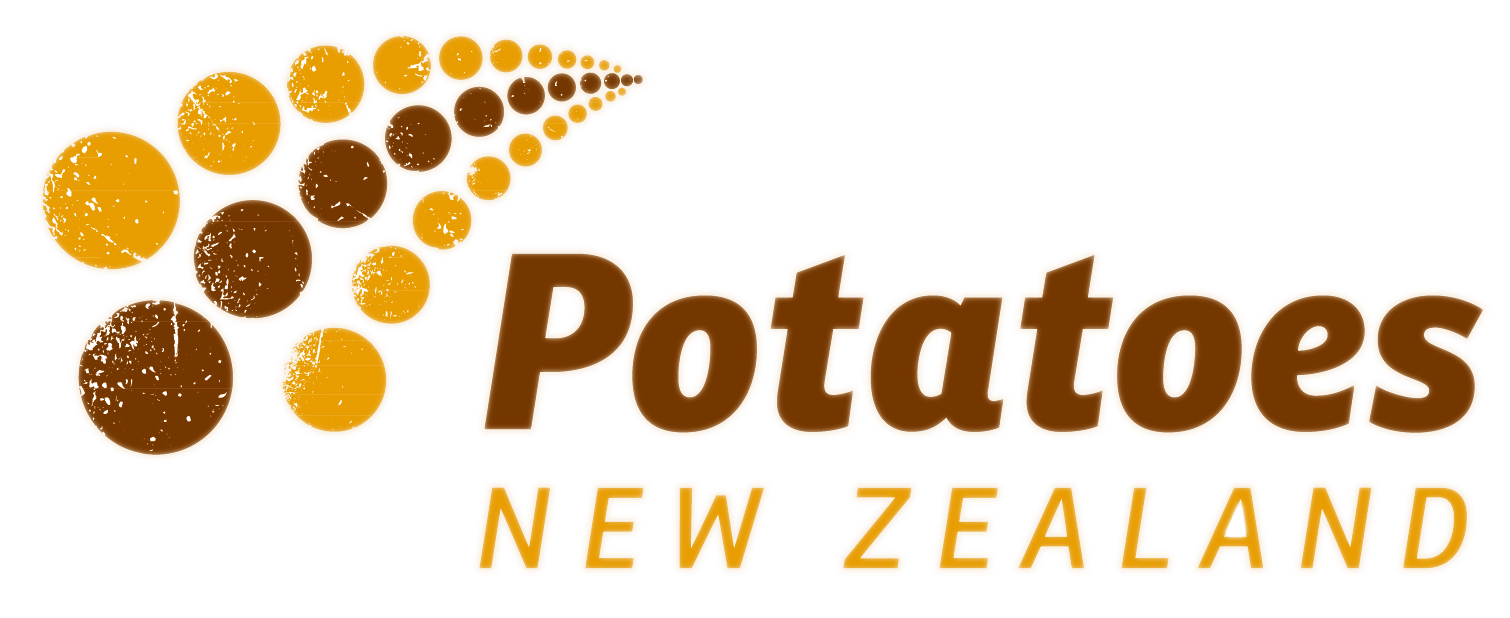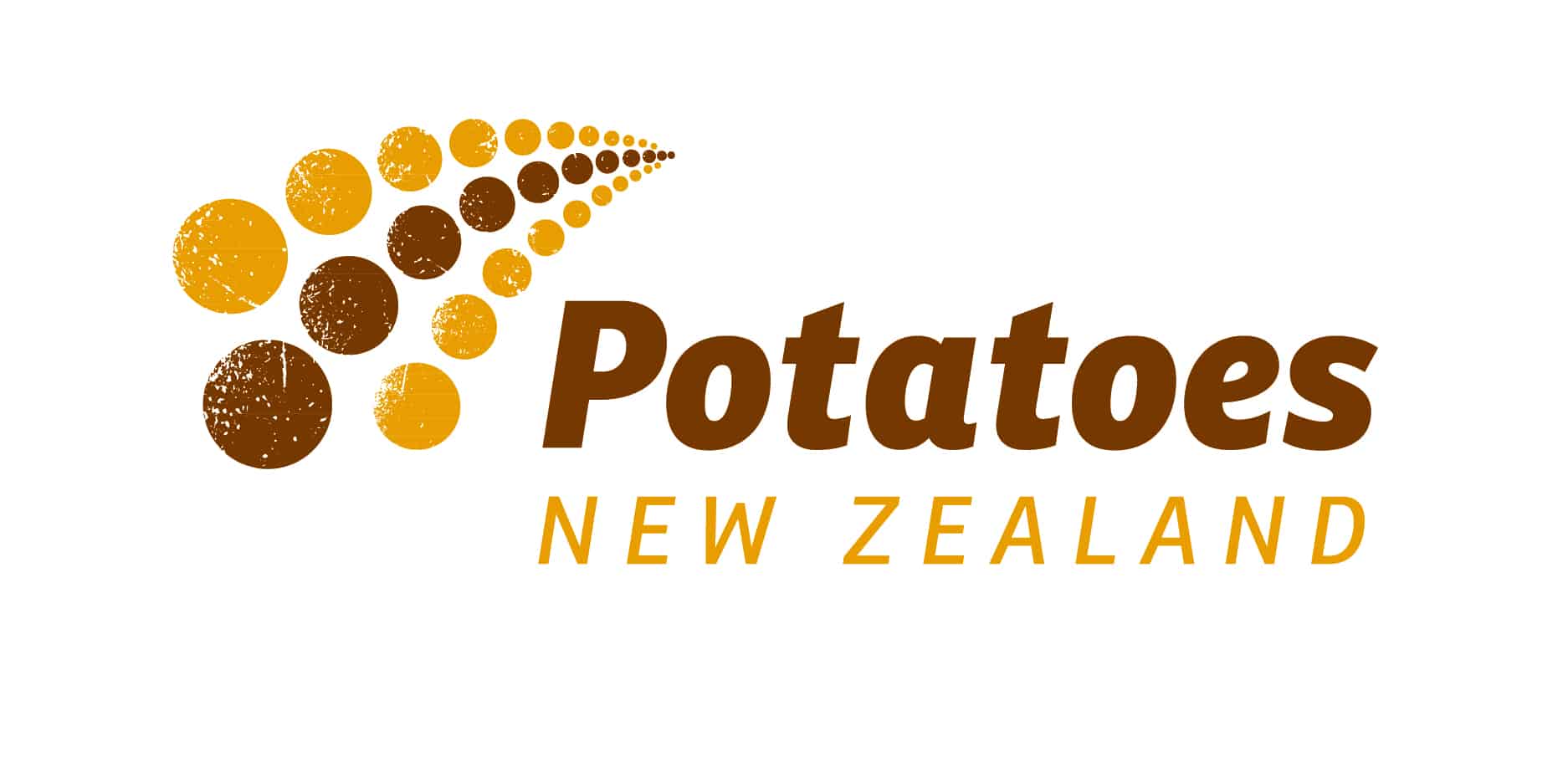Edited extracts from the SVS Grower Baseline Report.
The full report can be read here https://potatoesnz.co.nz/rd-project/emissions-project/
The Sustainable Vegetable System (SVS) project contracted social research provider FOLKL to ensure grower opinions and needs are central to the outcomes of the programme. Here we outline the insights from this baseline survey.
The 3 goals of the research were to
- Determine the level of N leaching problem recognition among growers.
- Quantify the current level of key fertiliser management practices.
- Identify the barriers to change.
What has the baseline survey told us?
- Nutrient management is the second highest concern in day-to-day operations, behind profitability.
- 57% of growers believe that nitrogen leaching has a significant impact on the environment.
- 46% believe they have a clear picture of nitrogen loss.
- Fertiliser use is predominantly grower’s own knowledge (58%), with fertiliser reps the second most common knowledge source. Other growers, codes of practice, industry material and workshops were all cited by less than 20% of growers.
- Growers are not entirely convinced about the practical realities of reducing N leaching.
- Growers who do acknowledge its impact on the environment are more engaged in a solution.
- Of growers who believe reductions are possible, over half (57%) believe reductions of up to 20% are possible. However, the tools or methods to achieve those reductions are not as clear-cut.
- The biggest barrier to reducing nitrogen loss is fear of reduced marketable yield (43%) followed by access to the right tools and testing (29%). That is where SVS fits right in!
Further insights and questions
Nutrient management ranks highly among vegetable growers and is a key aspect of their day-to-day operations. Growers are awareof the importance of managing nitrogenleaching to protectboth the environmentand their industry, butmany growers are unsure about theimpact that nitrogenleaching has on the environment. As you will see later there is a clear corelation between environmental concerns and mitigation action.
The perception of nitrogen’s environmental impact.
Initially 57% of growers strongly agreed that nitrogen leaching has a significant impact on the environment. Digging deeper about the magnitude of impact, a few more growers sat on the fence, with 54% saying the environmental impact was neutral to high, and 37% sticking with their opinion that nitrogen leaching had a significant impact. Opinions varied between the North and South Islands.
Influencing management practices.
When it comes to getting fertiliser advice growers are largely reliant on their own knowledge or that of a fertiliser rep. Eight out of ten growers measure soil nitrogen, however, the frequency of this is variable. Many growers are using their own nutrient budgeting tools (40%), with OverseerFM being the second most used tool.
It’s clear that guidance on the type of soil nitrogen tests, their handling, and frequency for testing would be beneficial. Soil testing is carried out by more than half of all growers at least once a year and most of these growers are testing two or more fields. Those who are not measuring nitrogen feel that it is either too complicated or difficult or have not recognised or been convinced that a need exists on their operation.
Nitrogen loss mitigation
There is a clear link between a grower’s acknowledgement of nitrogen’s impact on the environment and positive intent to address the issue in their own operation. Nitrogen loss management strategies vary widely, and some growers have never used them at all.
Calibration of spreaders and side dressing are the most used management techniques currently.
Growers have diverse views on the most impactful ways to reduce nitrogen loss, thereby presenting an opportunity to refine the landscape and identify the most effective strategies.
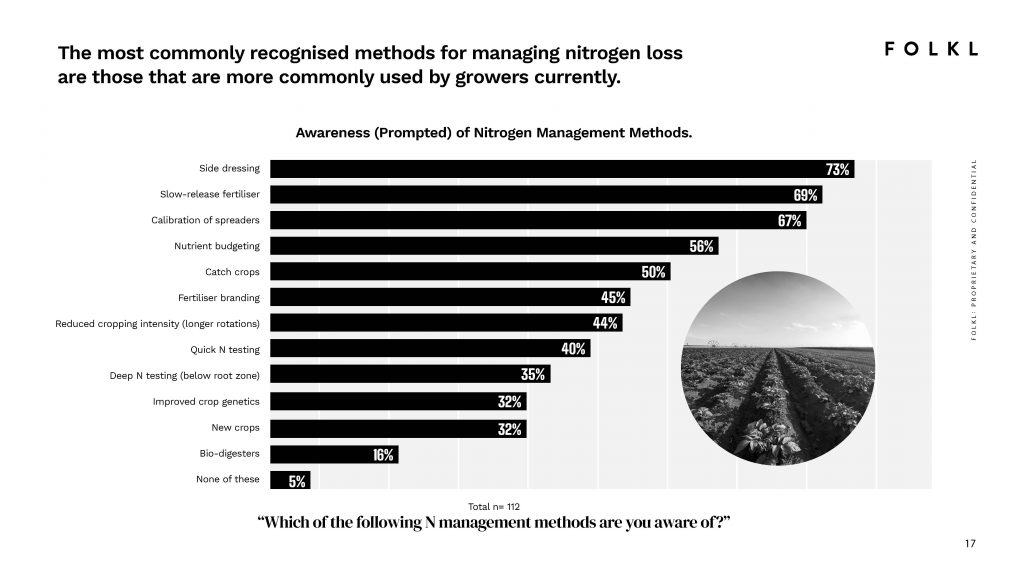
How much reduction is possible?
Approximately one in two of growers who feel nitrogen loss reduction is possible, believe they can reduce their own levels by up to 20%, however one in four are unclear on what’s achievable.
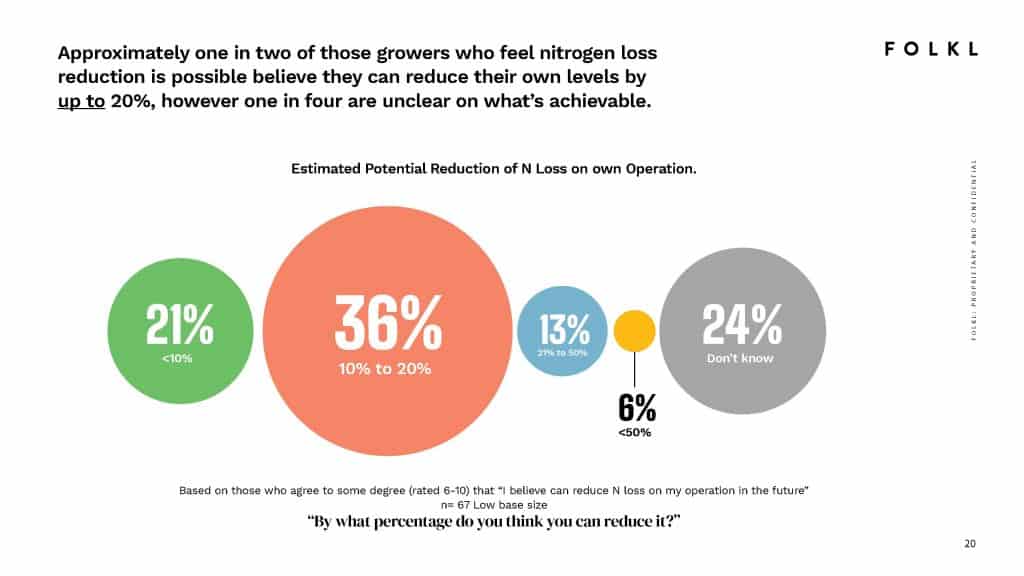
What are the barriers to reducing N leaching?
- Fear of lower yields (cited by 43% of growers)
- Not having access to suitable tools that they can rely upon (29%). SVS can help with this.
- Access to land and natural resources (22%)
- Lack of knowledge (20%)
- Cost (19%).
Opportunities arising from this baseline survey are:
- Research can build on growers’ current tools and experience to gain an understanding of the rationale for a particular approach.
- Further exploration of the perceptions of existing tools.
- Work is needed to understand the barriers to increased testing.
- Tapping into the wealth of views on the most impactful ways to reduce nitrogen leaching within the grower community, could help steer the sector towards the most effective strategies.
Next steps for SVS
There are a range of opportunities for further investigation (qualitative research).
Qualitative research will be used by The New Zealand Institute for Plant and Food Research (PFR) in further grower interviews to flesh out what growers’ own methods look like and gain an understanding of the rationale for doing it this way. It will also be useful to explore perceptions of the different tools available, and any future intent to use those.
Currently growers who are not measuring nitrogen within soil testing regimes feel it is either too complicated, too difficult and have not recognised or been convinced that a need exists on their farm. PFR qualitative research will explore more deeply the issues growers have in regard to nitrogen testing.
Growers have diverse views on the most impactful ways to reduce nitrogen loss, which presents us with an opportunity to refine the landscape of nutrient management and inform growers of the most effective strategies. Qualitative research may also delve into the beliefs held by growers about the various management practices and understand how this may differ by farm type etc then use this context to develop grower communications and grower facing tools.
Some growers are resistant to reducing their nitrogen loss and are less likely to be completing the associated processes e.g. soil testing, despite acknowledging the serious effects it has on the environment. Further qualitative research may uncover the underlying drivers behind this to then engage more growers in the issue.
SVS project goals
- Reduce the impact of crop farming on the environment and water quality while maintaining grower license to operate through national, regional and farm programmes.
- Enhance industries’ ability to grow, process and export products, while meeting environmental standards and maintaining international competitiveness.
- Maintain social license to operate for vegetable growers and industries.
